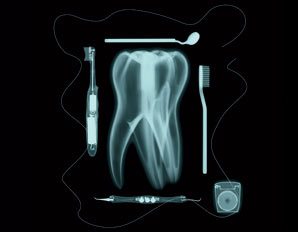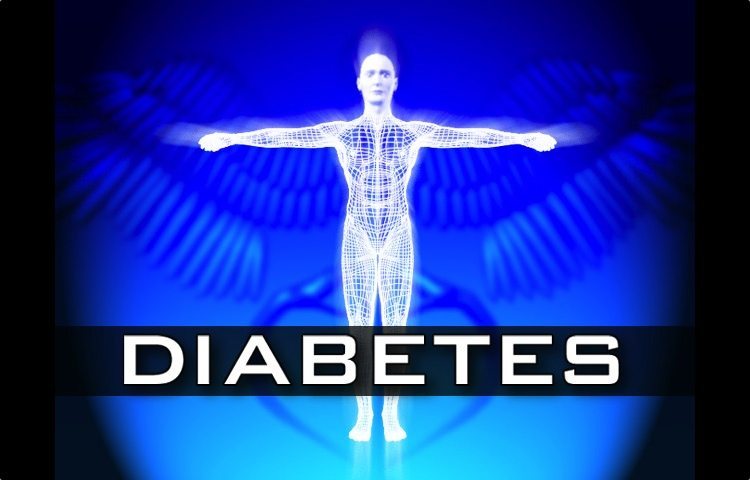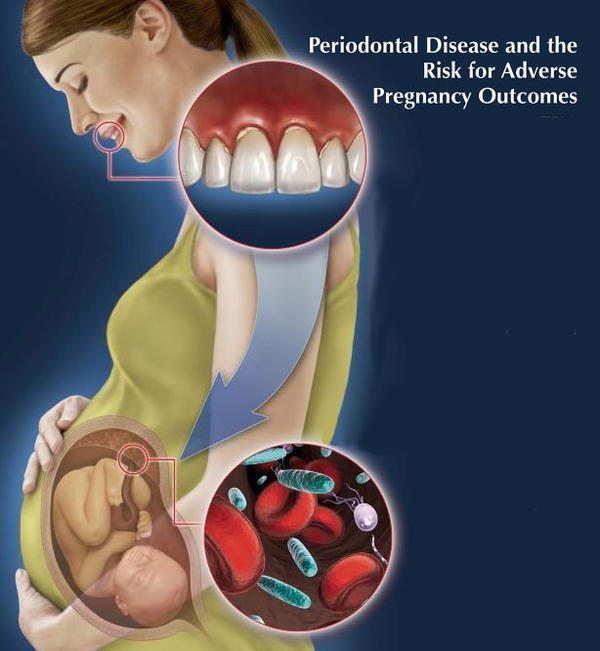Prevent tooth loss
Gingivitis and Periodontal Disease (Gum Disease)
Gingivitis, also called gum disease or periodontal disease, starts with bacterial growth in your mouth and may end with tooth loss. Gingivitis may result from poor oral hygiene, the use of certain medications, smoking, or certain illnesses.
What are the symptoms of
periodontal disease?
Periodontal disease may progress painlessly, producing few obvious signs, even in the late stages of the disease. Although the symptoms of periodontal disease often are subtle, the condition is not entirely without warning signs. Certain symptoms may point to some form of the disease. They include:
- Gums that bleed during and after tooth brushing
- Red, swollen, or tender gums
- Persistent bad breath or a bad taste in the mouth
- Receding Gums
- Formation of deep pockets between teeth and gums
- Loose or shifting teeth
- Changes in the way teeth fit together upon biting down, or in the fit of partial dentures
Even if you don’t notice any symptoms, you may still have some degree of gum disease. In some people, gum disease may affect only certain teeth, such as the molars. Only a dentist or a periodontist can recognize and determine the progression of gum disease.
Contributing Factors to Gum Disease

Gum Disease causes
Gum disease (periodontal disease) is one of the most common and potentially devastating oral diseases. Periodontal disease occurs when the chronic bacterial infection affects the gums and the bones that support the teeth. Below is a list of some of the factors that contribute to periodontal disease.

Inadequate or Poor Oral hygiene
Periodontal disease occurs when bacteria begin infecting the gums and surrounding tissues. missing the daily brushing and flossing allows the bacteria to form a sticky network of plaque. Eventually, bacteria can create an infection in the gums and underlying bone structure, causing periodontal disease.

Smoking and Tobacco use
Smokers are more susceptible to periodontal disease for a variety of reasons. Most important is that chronic tobacco use is known to lower your immune system ability to fight off the infection. Smoking causes the stain to develop on teeth making the accumulation of plaque easier. Smoking also dries out the mouth reducing saliva flow and makes the mouth less self-cleansing.

Diabetes
Uncontrolled diabetics are more susceptible to periodontal disease and experience more damage when gum disease is present. Diabetes inhibits the function of the smaller blood vessels in the gum tissue, reducing the ability of our white blood cells (immune system) to fight against this infection. Uncontrolled diabetics find it more difficult to control their diabetes if they are suffering from periodontal disease.

Pregnancy
Female hormones affect the gums and can exacerbate existing gingivitis. Many women find that hormonal changes during pregnancy can cause or worsen gum disease. The disease often begins around the second month and peaks around the eighth month, though it usually abates in the months after birth.

Genetics
Approximately 30% of the population has a genetic predisposition for gum disease. Studies also show that children with parents with periodontal disease are 12 times more likely to have the bacteria that cause plaque buildup and gum disease.

Stress
Stress contributes to a multitude of medical problems. With regard to gum disease, stress can cause chemicals that naturally occur in our body to increase, resulting in an environment more likely to encourage the development of the periodontal disease. Stress also lowers our immune system’s ability to fight infection.

Clenching and Grinding Teeth
Stress is often the cause of clenching and grinding. If periodontal disease is present, clenching or grinding will accelerate the normal rate of bone damage.
Reduce your risk of periodontal disease by practicing healthy oral hygiene habits and scheduling regular dental appointments at Lane Ends Dental Practice, Our Dental Hygienists and Therapists will help you achieve beautiful, healthy smiles. Contact our treatment coordinator on 01772 – 726932 to arrange an appointment.
A Healthy Mouth means A Healthy Body
If your mouth is unhealthy has an untreated disease, inflammation, or infection then it is increasing your risk for ill health and is already making you sick. Inflammation is the trigger to many of our chronic and life threatening health conditions like heart disease, strokes, high blood pressure, dementia, and cancers. As your dentist, I have the unique opportunity of looking inside your mouth and being able to see the condition of the inside of your body. I also get to look for and spot the warning signs of inflammation and disease that are contributing to or setting you up for these chronic systemic health issues. I can also look at your mouth and know if you are unhealthy or have systemic disease.
Call us today, To schedule a dental health assessment and find out your risk for inflammation and systemic illness
Tell: 01772 – 726932

